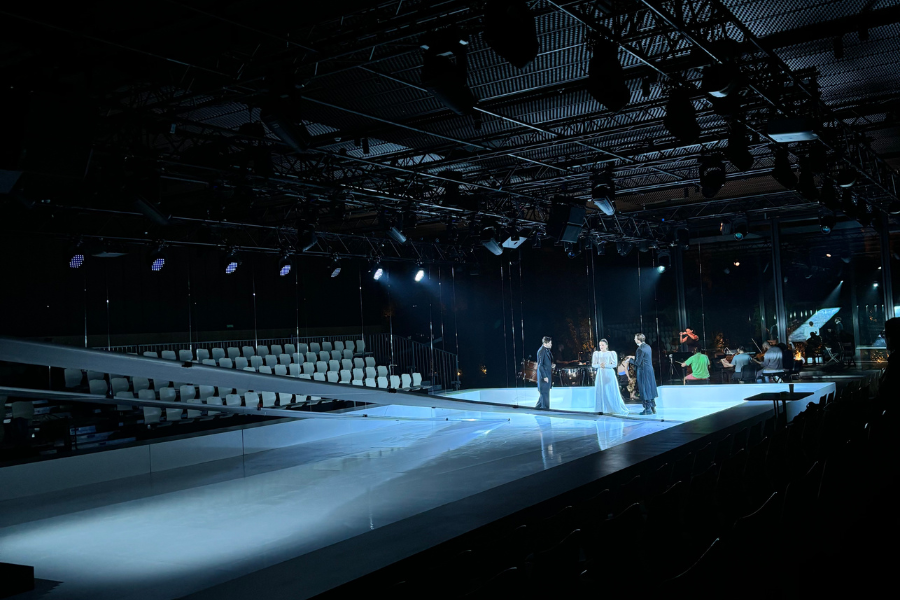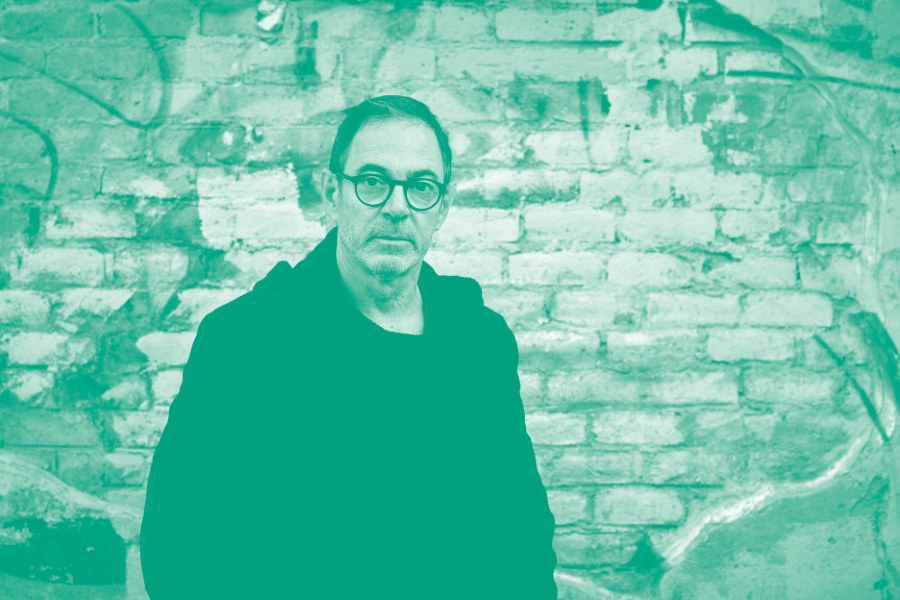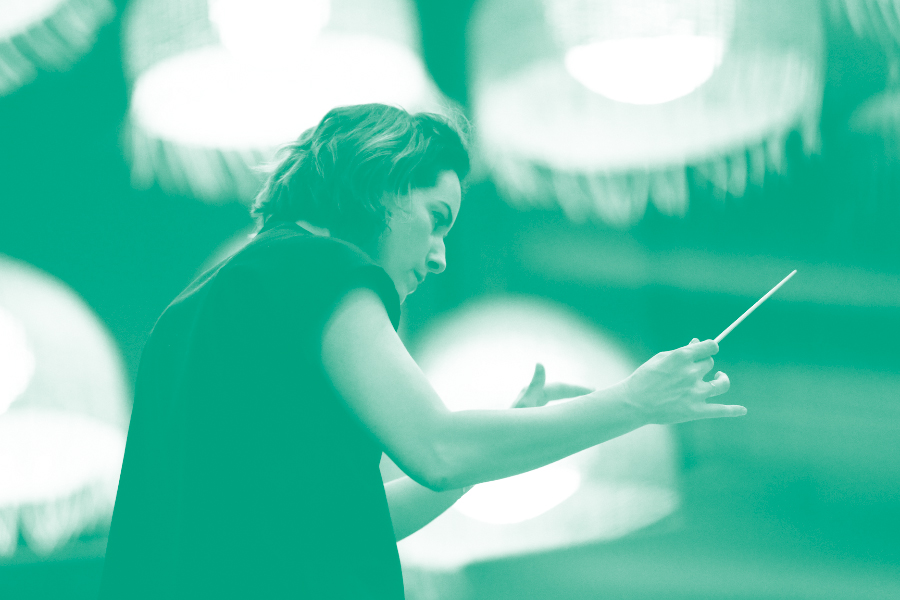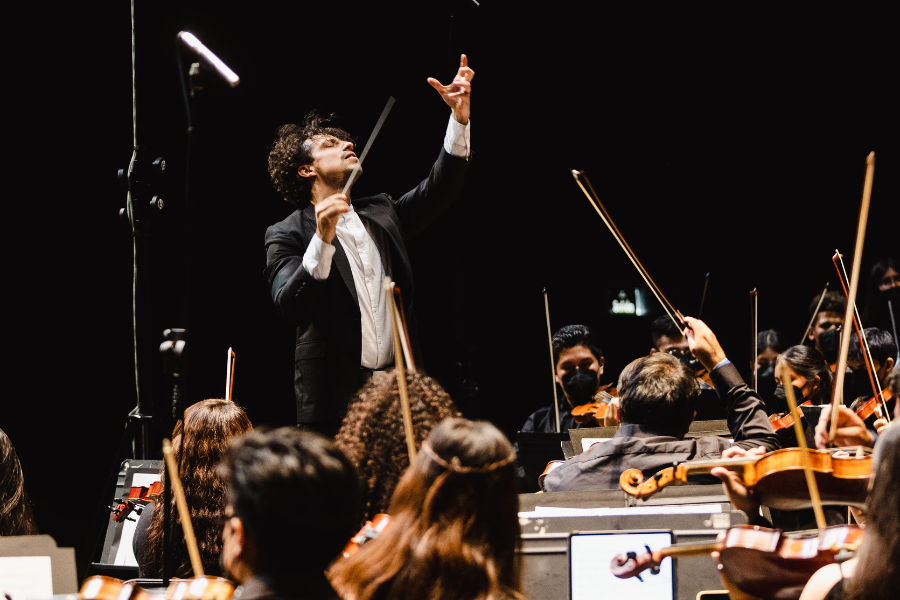Artistic world in social networks this Saturday, May 16
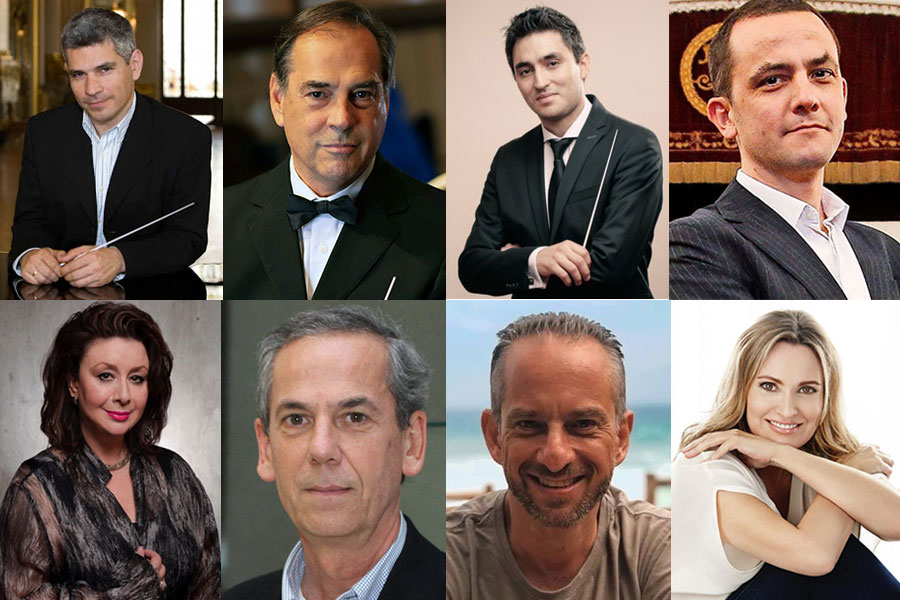
Facebook, Instagram and YouTube are the platforms that this Saturday, May 16 will host a conversation between the conductors Rodolfo Fischer, Maximiano Valdés, Pedro-Pablo Prudencio and Helmuth Reichel Silva; the live interview that Chilean soprano Verónica Villarroel will conduct with OLA Vice President Andrés Rodríguez; and Gerardo Kleinburg’s live conversation with soprano Ainhoa Arteta.
CONVERSATION BETWEEN ORCHESTRA DIRECTORS: RODOLFO FISCHER, MAXIMIANO VALDÉS, PEDRO-PABLO PRUDENCIO AND HELMUTH REICHEL SILVA
Given the uncertainty that the main symphonic groups in the world are experiencing, Rodolfo Fischer -recognized Chilean conductor based in Basel- will lead this Saturday, at 11 am : 00 hours, through his YouTube channel an open and free conversation with three other prominent national drivers: Maximiano Valdés, Pedro-Pablo Prudencio and Helmuth Reichel Silva, to share ideas and reflect on the challenges the pandemic has imposed on them.
“I recently attended a similar meeting organized by my former partner at the Curtis Institute: Alan Gilbert, along with Sir Simon Rattle, Daniel Harding and Karina Canellakis,” Fischer said from Switzerland. And he adds that it was very stimulating for him to see these great batons “in a confinement situation, sharing their emotions and also looking for alternatives for the slow rebirth of symphonic activity. I thought it would be useful to have a similar conversation with my Chilean peers and chat about the steps to follow, “he says.
I frankly doubt that any of them will be done, not only because of the restrictions on the number of people, but also because of how complex it is to travel in these times of covid-19 “. Faced with this little auspicious panorama, Rodolfo Fischer decided to lead this discussion to propose exits: “There are some ideas going around: smaller ensembles, rooms with few people or directly empty for the performance of concerts that are broadcast virtually,” he explains.
This year Rodolfo Fischer had commitments in La Serena, with the Orchestra National Youth Symphony of our country, in Colombia and Brazil. “All that was canceled. In these days of quarantine I have returned to play the piano and investigate new technologies. I can subsist by being locked up at home for three weeks, but when the seclusion lasts for six months, life takes another perspective and for so many colleagues it can be distressing. We are facing a tremendous standstill, “he closes.
Maximiano Valdés, principal conductor of the symphony orchestras of Puerto Rico and the National Youth of Chile, explains – in a telephone contact from the island – that for his Puerto Rican ensemble he designed a flexible plan.” second semester we are going to make recordings with chamber groups made up of members of the orchestra. We will record amusements from Mozart and works by Gounod and Stravinsky. If recitals can be made with eight musicians on stage, we will do them, and for the Casals Festival we have already made the decision that it will be broadcast online, “says Valdés. He also warns that, given this uncertainty, fertilizers will not be sold in Puerto Rico for the season 2020-2021, “but rather single tickets, as long as you can return to the routine of live concerts.”
Pedro-Pablo Prudencio, resident conductor of the Santiago Philharmonic, considers this meeting to be a fantastic opportunity to see this tragedy “from a more optimistic perspective, trying to contribute with creative ideas.”
And Helmuth Reichel Silva, titular conductor of the Orchestra of the University of Desdren (Germany), concludes: “Dialogue is essential. Ideas add up, especially when we go through such difficult times. “
CONVERSATIONS WITH VERÓNICA VILLARROEL
This Saturday, May 16 at 12 noon in Chile, Chilean soprano Verónica Villarroel will interview live the First Vice President of OLA, Andrés Rodríguez, through its academy’s Instagram account.
Andrés Rodríguez was born in Chile and graduated as a lawyer, he also studied music and singing at the Benedetto Marcello Conservatory in Venice, Italy and was Artistic Director and General of the Municipal Theater of Santiago for 34 years (1981-2015) He was the creator of the Professional Choir of the Municipal Theater and began the areas of co-productions in international theater America and Europe, such as: the Teatro Colón in Buenos Aires, the Teatro Real de Madrid, Capitole de Toulouse, Houston, Dallas and Washington Opera, Oviedo Opera, etc.
He founded and chaired Ópera Latinoamérica OLA, an organization that brings together the most im supporting opera houses of Ibero-America. He is currently the First Vice President of OLA.
He has been a jury in important voice contests such as Operalia de Plácido Domingo. He has received numerous distinctions, among which are: “Das Verdienkreutz la Klasse” (Official Cross of the Order of Merit of the Federal Republic of Germany) and that of “Illustrious Son of the Illustrious Municipality of Santiago.
He is currently the Executive Director of the Cultural Corporation of Vitacura, an institution that carries out important social, educational and cultural work in that community.
HABLEMOS DE ÓPERA WITH AINHOA ARTETA
The second live interview of Gerardo Kleinburg’s Hablemos de ópera en casa online program will have as guest the Spanish soprano Ainhoa Arteta, through her Facebook fanpage Hablemos de ópera, this Saturday 16th 18 hours from central Mexico.
Ainhoa Arteta is the daughter of Esther Ibarrolaburu and the musician José Ramón Arteta, who prepared her vocally at the beginning, and later trained at the San Sebastián Conservatory and studied acting at the Actors Studio in New York. She debuted at the Palm Beach Florida Opera in 1990, as Clorinda in Rossini’s Cinderella. Of his intense concert activity, the recital at the White House stands out, with Bill Clinton in power, on the occasion of the official visit of the President of Colombia to Washington, DC
Hablemos de ópera is a program that has been on the air for 5 years and is made up of countless and permanent conferences, courses and talks. These cover such topics as: opera history, auditory training, operatic production, operatic analysis, and entire cycles on specific themes and composers.


